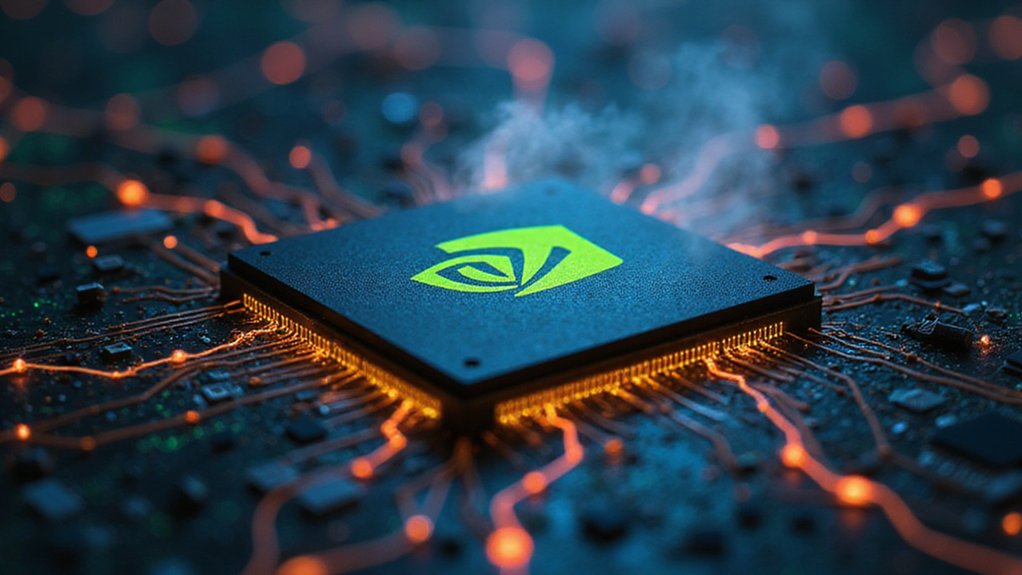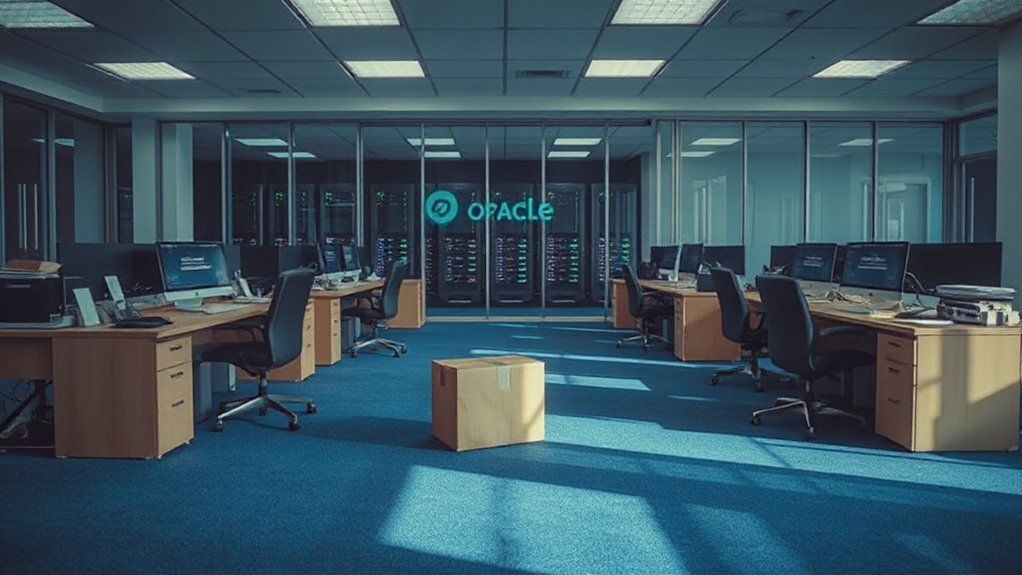AI’s business impact extends far beyond chatbots. Companies now make decisions using real-time data analysis instead of gut instinct. AI automation handles tedious tasks, boosting productivity while freeing workers for creative projects. It personalizes customer experiences, enables new services like self-driving vehicles, and strengthens security through pattern monitoring. By 2030, up to 40% of global jobs may be exposed to AI influence. The quiet transformation is already reshaping industries worldwide.
While business leaders once relied on gut instinct to make crucial decisions, the rise of artificial intelligence has ushered in a new era of data-driven strategy. Today’s AI systems analyze vast amounts of information in real-time, giving companies clear insights for better choices. These tools spot trends, predict customer behavior, and optimize pricing without human delay.
Behind the scenes, AI handles tedious tasks like data entry and document processing. This automation cuts costs and boosts productivity. Workers now spend less time on paperwork and more time on creative projects. Companies report faster service and fewer errors when AI manages routine processes.
Customers benefit too, often without knowing AI is involved. When a shopper sees product recommendations that match their taste, AI likely made those suggestions based on their past behavior. Virtual assistants now provide help day and night, answering questions and solving problems. These personalized experiences lead to happier customers who return more often. Companies are increasingly using AI to enhance customer loyalty programs by analyzing data for tailored shopping experiences.
Innovation thrives with AI support. New products like self-driving vehicles rely on advanced AI systems. Companies can test ideas quickly using AI feedback. This has created entirely new services that weren’t possible before. Traditional industries are finding fresh ways to grow with these tools.
Security improves as AI watches for unusual patterns. Banks use AI to spot fraud in seconds. Companies detect cyber threats before they cause damage. Loan applications get faster reviews with more accurate risk assessment. These protections make businesses more resilient against many threats.
Human resources departments use AI to find the right job candidates faster. They can predict which teams need training and when workers might quit. Scheduling becomes more efficient, matching the right people to the right tasks. Recent studies show up to 40% of global jobs may be exposed to AI by 2030, particularly in customer service roles.
Across industries from healthcare to manufacturing, AI transforms how work happens. Doctors diagnose diseases earlier, factories prevent equipment failures, and stores keep just enough inventory. This quiet change extends far beyond simple chatbots, reshaping how businesses operate at their core. The technology fundamentally changes how companies collect and process data through intelligent decision making capabilities that weren’t previously possible.
References
- https://www.wiz.ai/what-is-the-artificial-intelligence-revolution-and-why-does-it-matter-to-your-business/
- https://bernardmarr.com/what-is-artificial-intelligence-ai-in-business-10-practical-examples/
- https://www.knopro.org/challenges/financial-literacy-challenge/overview/
- https://www.modev.com/blog/the-ai-revolution-in-business-adapt-or-fall-behind
- https://www.cjpi.com/insights/artificial-intelligence-unleashing-a-business-revolution-or-risking-the-downfall-of-civilisation/









